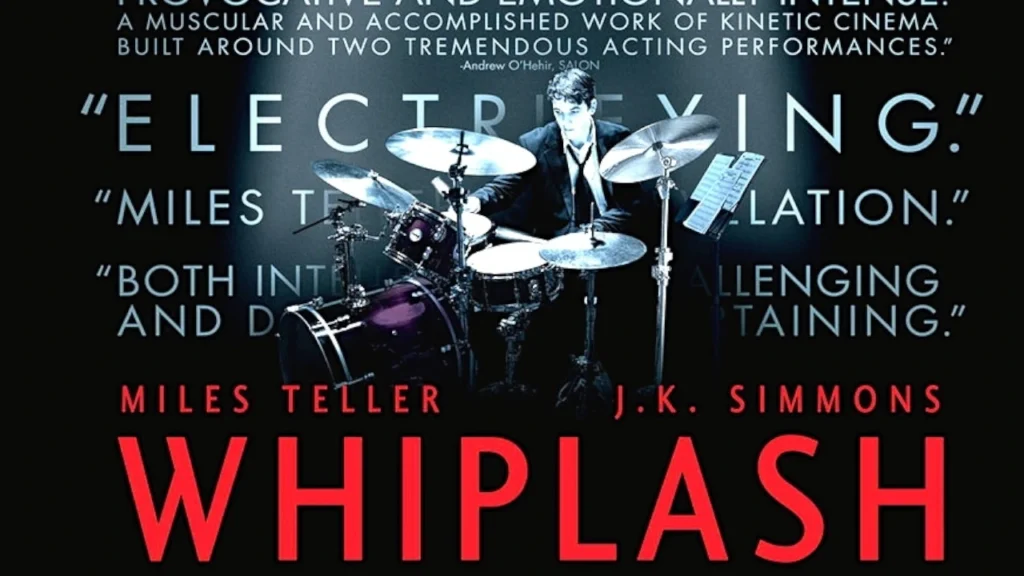
Whiplash, directed by Damien Chazelle, is a gripping drama that explores the intense relationship between an ambitious young drummer and his relentless music instructor. Starring Miles Teller as Andrew Neiman and J.K. Simmons as Terence Fletcher, the film delves into the themes of ambition, sacrifice, and the fine line between inspiration and abuse in the pursuit of greatness.
The story follows Andrew, a talented and passionate jazz drummer at a prestigious music conservatory. Driven by his dream of becoming one of the greats, he faces the daunting challenge of impressing Fletcher, the school’s esteemed but notoriously harsh bandleader. Fletcher is known for his unforgiving teaching methods, pushing his students to their limits in search of excellence. J.K. Simmons delivers a powerful performance as Fletcher, embodying both the charisma and cruelty of a mentor who believes that true artistry can only emerge from extreme pressure.
The film’s tension builds as Andrew strives to meet Fletcher’s impossible standards, sacrificing his personal life and well-being in the process. The relentless rehearsal sessions, punctuated by Fletcher’s explosive outbursts and psychological manipulation, create an atmosphere of constant fear and competition. Teller’s portrayal of Andrew captures the character’s determination and vulnerability, making the audience empathize with his struggle for validation and success.
One of the film’s most memorable aspects is its innovative use of music and rhythm. The powerful jazz sequences not only serve as a backdrop for the story but also heighten the emotional stakes. The climactic final performance, in which Andrew plays the iconic song “Caravan,” showcases the culmination of his hard work and dedication. The editing, combined with the electrifying score, immerses viewers in the intensity of the performance, reflecting Andrew’s journey from uncertainty to confidence.
Whiplash raises important questions about the nature of mentorship and the cost of ambition. While Fletcher’s methods may yield results, they also blur the lines between teaching and torment. The film challenges the audience to consider whether the pursuit of greatness justifies the extremes to which individuals must go. It portrays the transformative power of music while also exploring the emotional toll it can take on those involved.
The cinematography is striking, with close-ups that emphasize the characters’ expressions and the intricate details of the drumming process. Chazelle’s direction creates a palpable sense of urgency, making every scene feel charged with tension and emotion.
In conclusion, Whiplash (2014) is a masterfully crafted film that examines the complexities of ambition, artistry, and the mentor-student dynamic. With exceptional performances, a captivating score, and a gripping narrative, it resonates deeply with anyone who has ever pursued their dreams. The film’s exploration of the sacrifices made in the name of excellence leaves a lasting impact, making it a standout in contemporary cinema.




